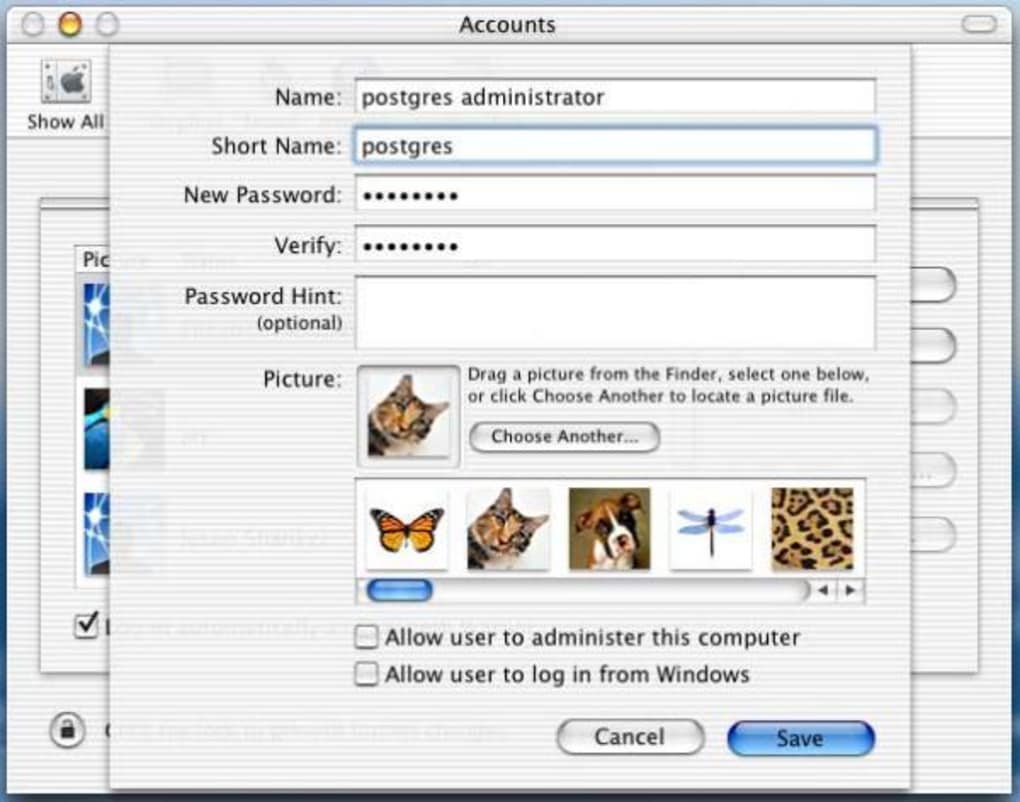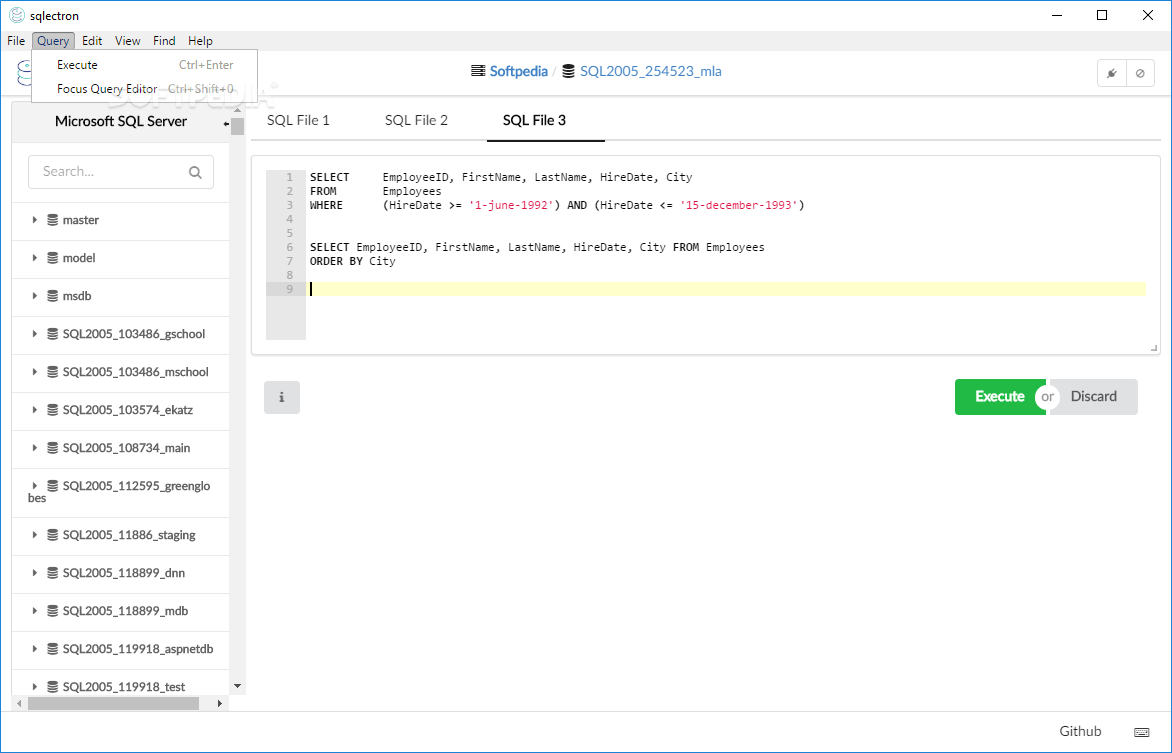고정 헤더 영역
상세 컨텐츠
본문

- Navicat for PostgreSQL is an easy-to-use graphical tool for PostgreSQL database development. From writing simple SQL queries to developing complex databases, Navicat for PostgreSQL is designed to accommodate a wide range of users, from PostgreSQL beginners to seasoned developers.
- Most interesting in Databases and Networks. DbForge Data Generator for SQL Server. Allavsoft for Mac update to download video from Lynda, Udemy, Tenplay, SBS, Unstream etc. ApexSQL Refactor. ApexSQL Refactor is a free SQL formatter and database refactoring tool for SQL Server. DTM Data Generator.
Navicat for PostgreSQL is an easy-to-use graphical tool for PostgreSQL database development. From writing simple SQL queries to developing complex databases, Navicat for PostgreSQL is designed to accommodate a wide range of users, from PostgreSQL beginners to seasoned developers. Connect to local/remote PostgreSQL servers and compatible with cloud databases like Amazon Redshift, Amazon Aurora, Amazon RDS, Google Cloud, Microsoft Azure, Alibaba Cloud, Tencent Cloud and Huawei Cloud, and all PostgreSQL database objects.
Database as a Service Reliable and powerful database as a service based on PostgreSQL. Grade ELK Stack Frustration-free log management. Papertrail makes logs fun. The perfect tool to edit static pages. Fast, modern search with autocomplete, query result management, and analytics.
Cross-Platform Licensing Cross-platform licensing is now available in Navicat 12. Whether you’re operating on Windows, macOS, or Linux, you can purchase once and select a platform to activate and later on transfer your license. System Requirements Windows Microsoft Windows Vista, Windows 7, Windows 8, Windows 8.1, Windows 10, Server 2008, Server 2012, Server 2016 macOS Mac OS X 10.10 Yosemite, Mac OS X 10.11 El Capitan, macOS 10.12 Sierra, macOS 10.13 High Sierra, macOS 10.14 Mojave Linux Ubuntu 12.04, Ubuntu 14.04, CentOS 6.7, CentOS 7, Fedora 22, Fedora 23, Linux Mint 13, Linux Mint 17.3, openSUSE 13.2, openSUSE 42.1.

benefit of OSS being that you have access to the source to fix/add things The place where this is the most beneficial is when considering businesses looking to invest in a technology. If you invest in a company/software product that goes under, then you could be saddled with a piece of tech that you can't fix bugs for, etc. If it's open source you at least have the chance to do so, even if the community around it collapses and there is no new development. The idea that access to the source is some sort of cure-all is a fallacy, but it may also just be a straw man. I don't know that anyone says that all open source projects are going to be manageable just because the source is available, but they are by definition more manageable than a project with no source available.
So, I was rescuing an MS Access application that imperfectly synched from a MySQL instance powering the Rails app from which it got data, that had been exported to MS SQL that was running (surprisingly well) inside a Windows XP VM I was accessing via Remote Desktop Connection. So: I have no idea.
Looking For Free(ish Postgresql Database Viewer For Mac Free
I totally forget. It was some really-complicated-looking MS tool that allowed me to look at the table row by row and run some queries:).
The guy I was working for set it up; my excuse is I stopped using windows back in 2004. This idea is friggin awesome and definitely something I'd pay for. My apps are pretty evenly divided at this point between MySQL, Postgres, and MongoDB, and I don't see that trend going away any time soon (we always pick the db that makes the most sense for each particular project). Having them all available in the same app would be amazing. With that in mind, just to warn everyone, this is very alpha-level software. It only supports postgres and redis right now.
If you put the wrong credentials in, there's no feedback, it just seems like nothing happened. Also, trying to resize the window turned everything white for me and the app had to be rebooted. If you decide to use it (and please do, because I want this to work), be sure to have your Mac's system log opened in console, so you can see what's going on. UPDATE: Looks like someone has already submitted a pull request for the 'no feedback on wrong credentials' bug I mentioned 1, and I created a ticket for the resize issue 2. That's just patently untrue: either GTk or Qt would work perfectly. I don't see why the desktop environment would matter-the program doesn't have to (and probably shouldn't) care whether I'm on Gnome or KDE or Unity. Moreover, all the popular environments support both GTk and Qt fairly well, and both are cross-platform, so you would actually be supporting more users than with a Mac OS-only program.
Really, fragmentation like this is not nearly the issue people make it out to be. Basically, everybody can use everybody else's programs on Linux, with the exception of very odd or customized systems. And the sort of people who have very odd and customized systems can fix problems themselves. EDIT: Also, you could use wxWidgets.
That would give you a native look on all the platforms you support. I would also like to clarify that I understand an OS X user wanting to write an OS X-only program.
The real issue is dissuading others from supporting Linux because of non-existent fragmentation issues. They simply do not affect people using GTk or Qt, in practice. Well yes, because unless I'm much mistaken, Qt and GTk are both supported by OS X so they are both supersets.
(This is obviously ignoring Windows, which is also supported by Qt and GTk but is probably difficult for other reasons.) There are also cross-platfrom native options like wxWidgets. These also work both on Linux and other systems. Finally, the last StackOverflow survey1, which I think is pretty representative of the sort of people who would use a program like this, had both Linux and OS X at about the same level (20% each). So Linux is certainly not negligible. ODBC is fairly complex (both to work against and to implement providers for) and is very much tied to relational databases. It's also unevenly implemented: On Windows there's native Microsoft-provided ODBC (but in terms of focus it has been superceded by ADO, which superceded OLE DB, which was supposed to be the replacement for ODBC — it's not like Microsoft ever settles on a single technology), and on Unix there's UnixODBC. I don't know about the driver quality; I suspect Windows ODBC drivers are quite good, whereas JDBC has been favoured by the server/enterprise world for a while, and I would not be surprised if UnixODBC drivers were a bit behind the times.
As for the Borland dev tools, they also used their own proprietary data source tech: The BDE (Borland Database Engine), which had an ODBC bridge built in. I remember being quite fed up with the BDE at the time, and eventually started using a set of native ODBC components that someone developed.
Cocoa does have a sort of rich data framework that you refer to: Core Data. Unfortunately it's quite complex, and not really designed to be a common interface to databases, but rather a sort of data abstraction layer where you work with objects and never see any SQL.




